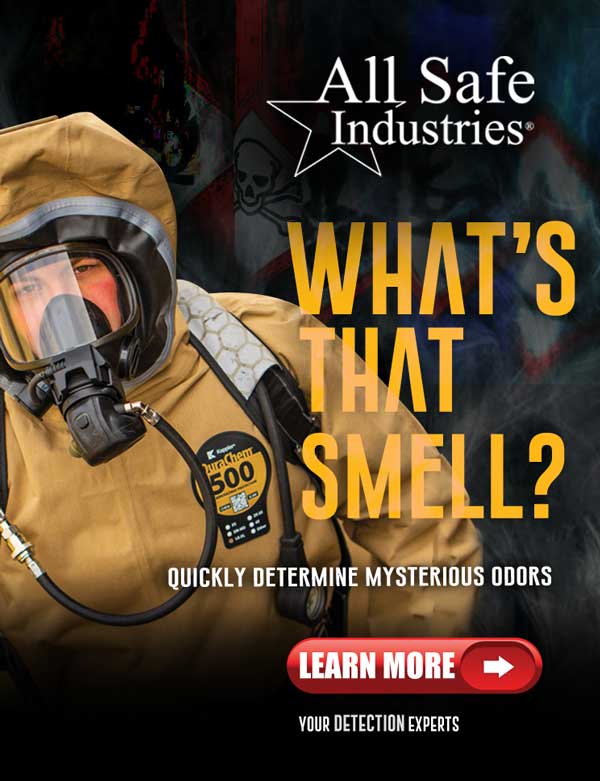Hello again friends and hazmatters. I want to lead off this edition of the blog focusing on our friends in VA, more specifically the Virginia Association of Hazmat Response Specialists. The annual VAHMRS conference was forced to be cancelled due to the Hurricane that just hit the area. We have not had a hurricane hit the Baltimore area directly in a long time so its hard to imagine taking a direct hit from such a storm. Kudos to the association and conference committee for making such a tough decision. The conference will continue to receive my support in 2019 when it comes back stronger than ever.
Attendance at the conference is mostly on a regional basis. Do not be fooled by this though. As the oldest existing hazmat conference in North America, they offer quality training that is comparable to the larger offerings such as the IAFC Hazmat or Hot Zone. The one thing that really sets the VA conference apart is the wealth of local talent.The state of VA is well equipped and trained for hazmat responses. None of this would be possible without the dedicated responders and leadership of the association. The conference gives a really good look at how well hazmat response is handled in the Commonwealth.
A definitive course of action provides the most efficient and safest way to handle a hazmat incident. In reality, the training our members receive needs to give them the tools to make those decisions.
My role in the BCFD hazmat gives me the primary responsibilities of training and response. Countless hours of my time are spent creating, facilitating and giving training classes. I have come to realize what matters about the training given to our members. What strikes me most is that I have to trust myself and the training I am giving our members.
My philosophy is that the members must be trained to make the most informed decision they can based on available information. Knowledge is power and the more our members have, the better the ability to make good decisions. A hazmat incident dictates that all sorts of decisions need to be made. PPE and decon methods are just a few examples. You can make an incident worse by making no decision at all. A definitive course of action provides the most efficient and safest way to handle a hazmat incident. In reality, the training our members receive needs to give them the tools to make those decisions.
Imagine if you are the first arriving officer at a dwelling fire. You must make certain decisions before the arrival of the chief such as life safety hazard, where to get water, whats the occupancy and so much more. Can you make that decision without having the necessary tools to do so? Are hazmat incidents any different? You must always perform to your level of training. Hazmat presents other challenges because of the different levels of training. Typical FD personnel are only trained to the 24 hr. level. The members of the hazmat team are trained to the 40 hour level or above. The decisions made can be greatly affected by your level of training. The Operations level should be thought of as defensive and technician level as being offensive. It is easy to see the difference in the tools necessary for each of these levels.
Typical FD personnel are only trained to the 24 hr. level.
The members of the hazmat team are trained to the 40 hour level or above.
The Operations level should be thought of as defensive and technician level as being offensive. One generic type of question that is often asked of me is this: What should be done if this happens? My response is take all the available information and make the best decision based on that information. It would be irresponsible of me to try and tell them exactly what they should do when this or that happens. Responders should not be micro managed. They need to be given the ability to make the necessary decisions. Responders need to be able to evaluate and think for themselves. Effective training will give the members the tools they need. Using the words always and never in hazmat is an easy way to get your crews complacent and get surprised easily. I was taught this early on in my career by Bob Swann of the Maryland Dept. of the Environment Emergency Response.
The variables in a hazmat incident do not always play out like the book says they should. I always joke around that officers get paid the big bucks to make decisions. In reality, they are the one responsible to make those decisions when they arise at an incident. After all the efforts an instructor makes, does he ever get to see what makes it worth it? In some way shape or form, the answer is yes. The instructor may not always see the reward first hand. One such case occurred recently and inspired this blog topic. After near flawless execution of the procedure, the situation was abated and the agencies involved were satisfied with the results.”
The BCFD hazmat recently responded to a suspicious substance call at a downtown office building. The call to investigate came from a federal agency who we have worked very well with in the past. Hazmat was dispatched and our suspicious substance procedure was followed. The procedure has evolved over time from early white powder protocols and is well received by our partner agencies when we follow this for investigations. As it turned out, the call was of interest to several alphabet soup agencies and the spotlight was on our responders.
A high profile call like this always places pressure on the training the members have received. It was no secret to the members that there was the highest level of interest in the outcome of the incident. It’s crunch time for the BCFD Hazmat in this situation. As usual, the members of the BCFD shined when asked to handle a difficult situation. After near flawless execution of the procedure, the situation was abated and the agencies involved were satisfied with the results. The reward in this story comes after the fact as I was off duty on this day. It really struck me after hearing this story almost a month after it occurred. All parties involved were pleased with the outcome (including my supervisor). I realized that as an instructor, you may not always be present to see the good or bad that comes of the training you give.
What really makes it worth your time are the success stories you hear after the fact. Obviously you don’t want to hear the failures. The failures should provide good motivation to improve the training you give. You have to trust what your doing and understand you may not always be present when the successes or failures occur. The success stories you hear or see yourself are what makes being an instructor all worth your time.
Thanks for coming back to read the Buzz Blog. I would encourage feedback(good or bad) and hearing your thoughts especially if your’e an instructor also.
Until next time, keep training no matter how insignificant you think it may be!
Check out Kevin’s other Buzz Blogs Here!



